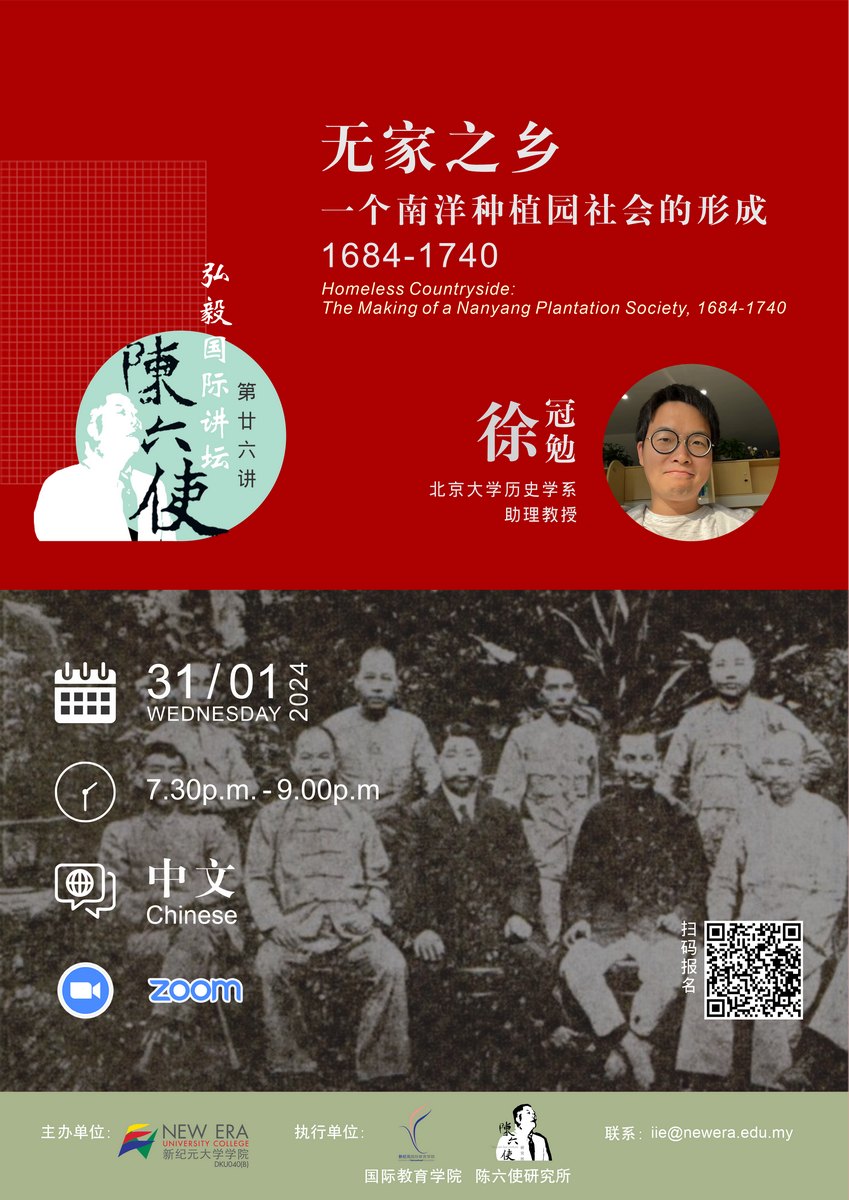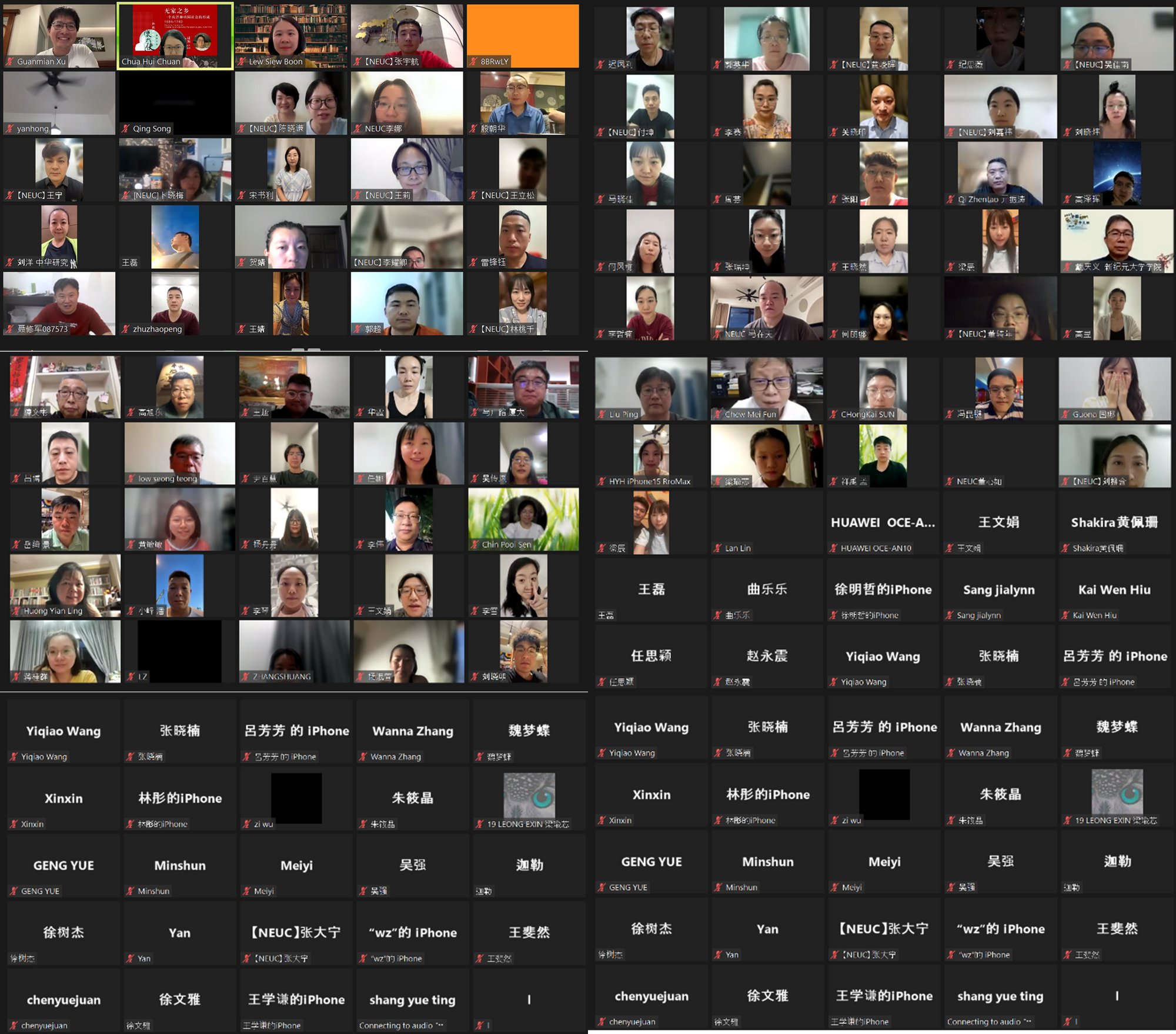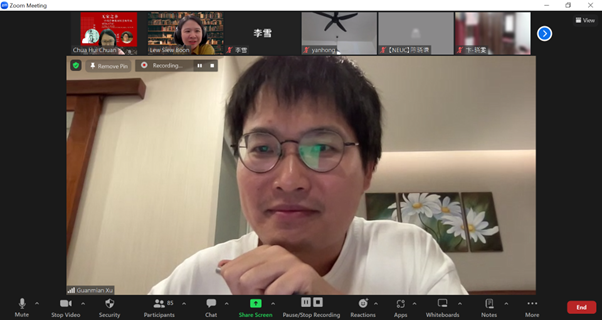【26th Talk】Assistant Professor Dr. Xu Guanmian: “Homeless Countryside: The Making of a Nanyang Plantation Society, 1684-1740”
Upcoming Event

|
Introduction |
The twenty-sixth talk of the “Tan Lark Sye Lecture Series” will take place soon. This talk features Dr. Xu Guanmian from Peking University as main speaker. Dr. Xu’s lecture will uncover a chapter in the history of Asian plantation labor, reflecting on the formation of an early modern Nanyang plantation society. He will explore why the society didn’t transform into the familiar small farming community but took on a plantation model instead. The discussion will delve into why production, not reproduction, became the primary concern of this society, leading to the creation of a rural community that doesn’t center around the family as the fundamental production unit – essentially, the birth of a homeland without a home. |
|
Speaker |
Asst. Prof. Dr. Xu Guanmian (Assistant Professor, Department of History, Peking University) Asst. Prof. Dr. Xu Guanmian graduated with a BA, MA, and PhD in History from Leiden University in the Netherlands. He is currently an assistant professor in the Department of History at Peking University. His main research fields include colonial history, global history, and material culture history, with a particular focus on the early modern Dutch colonial empire, Southeast Asia, and overseas Chinese communities. His research has been published in core academic journals in both English and Chinese, including the Journal of World History (2022), International Review of Social History (2022), Itinerario: Journal of Imperial and Global Interactions (2020), Tsinghua Journal of Philosophy and Social Sciences (2020), and the Journal of Historical Anthropology (2019). |
|
Moderator |
Asst. Prof. Dr. Lew Siew Boon (Assistant Professor at the International Education College of New Era University College) Asst. Prof. Dr. Lew Siew Boon completed her Ph.D. at the National University of Singapore in 2021. She is currently an (Assistant Professor at the International Education College of New Era University College). Her primary research focuses on folklore and folk culture, as well as the history of the Chinese communities in Singapore and Malaysia. She has published monographs such as Guest of Jinshan: The Shuiyue Palace of Kelantan and its Guan Yin Belief and China and Southeast Asia's Hakka: A Cross-regional Exploration and Discussion (second author). Her doctoral thesis was nominated for the Wang Gongwu Best Thesis Award (Social Sciences) by the Faculty of Arts and Social Sciences at the National University of Singapore. She has also published more than ten academic papers. |
|
Information |
Date: 31 January 2024 (Wednesday) |
Trailer (Video)
Lecture Postscript
The 26th session of the "Tan Lark Sye Lecture Series," organized by the Institute of International Education, New Era University College (IIE, NEUC) and the Tan Lark Sye Institute, was held on 31 January. The guest speakers for this event was Assistant Professor Dr. Xu Guanmian from Peking University. It was attended by more than 120 people.
Dr. Xu, obtained his bachelor's, master's, and doctoral degrees in history from Leiden University in the Netherlands. He is currently an assistant professor in the Department of History at Peking University. His main research areas include colonial history, global history, and material cultural history, with a focus on the early modern Dutch colonial empire, Southeast Asia, and overseas Chinese communities.
This lecture was titled “Homeless Countryside: The Making of a Nanyang Plantation Society, 1684-1740”. The speaker utilized archival materials from the East India Company to excavate a segment of Asian plantation labor history, analyzing how an early modern plantation society in Nanyang was formed. He discussed why this society did not evolve into the smallholder society we are familiar with but instead adopted a plantation model. The lecture shared insights on why production, rather than reproduction, became the primary issue in this plantation society, and how this led to the emergence of a rural society that was not based on the family as the fundamental unit of production. The event was moderated by Assistant Professor Dr. Lew Siew Boon from NEUC. It received enthusiastic feedback, with the audience actively participating in the Q&A session and eagerly engaging in discussions.




